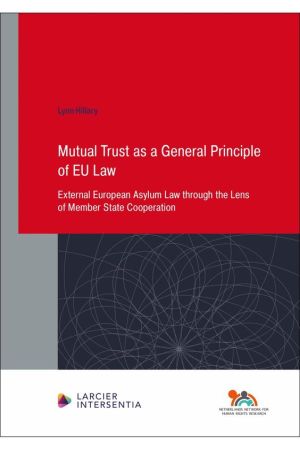
This book offers an in-depth analysis of mutual trust in EU migration and criminal law, which highlights the cooperation dynamics between the Member States. This leads the author to the novel argument that mutual trust should be considered as a general principle of EU law. Qualifying mutual trust as a general principle of EU law matters because, when we consider mutual trust as a general principle of EU law, it offers a pertinent lens through which to study Member State cooperation dynamics in the context of external European asylum law. To make this tangible, the book maps the EU-Turkey Deal and the Belgian humanitarian visa practice as critical case studies, from a political science-legal approach.
Finally, this book argues that, if the choice for the externalization of European asylum law is made, the connection and interplay of such externalization strategies with instruments of internal European asylum law should be at the forefront of the policy considerations of the EU and its Member States. Cooperation between the Member States in the external sphere of European law, which focuses mainly on deterrence strategies, and which does not keep in mind the intrinsic connection between internal and external European asylum law, misses the mark. Instead, this book recommends an integrated approach to internal and external European asylum law.